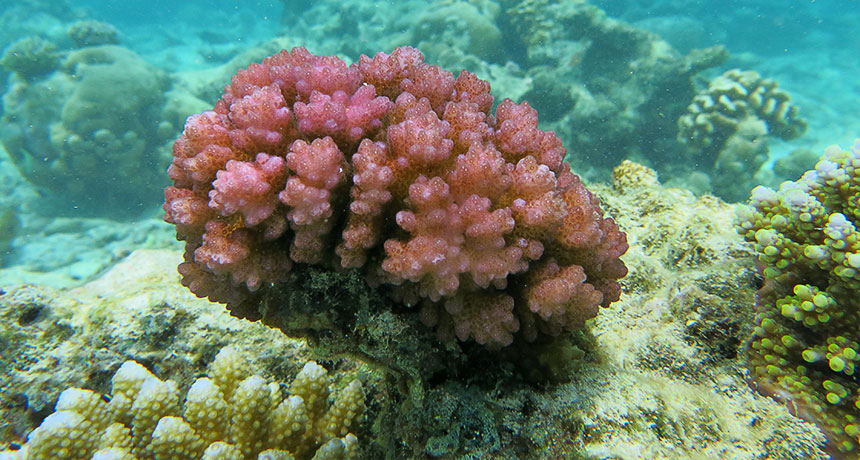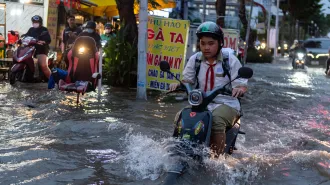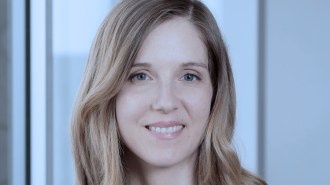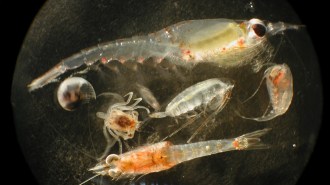Coral larvae feed on their baby fat
Symbiotic algae are prime nutrition source for adults only, study finds

BABY FAT Young cauliflower corals may rely on fat reserves, not algae, for food and therefore could be less sensitive to bleaching than adult corals (shown here), researchers propose.
Ahmed Abdul Rahman/Wikimedia Commons




